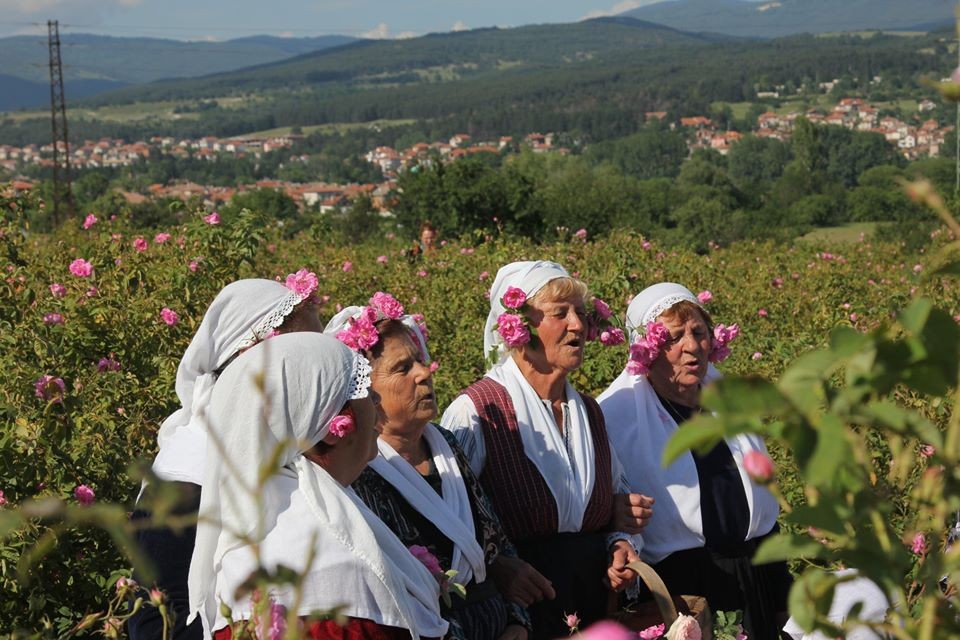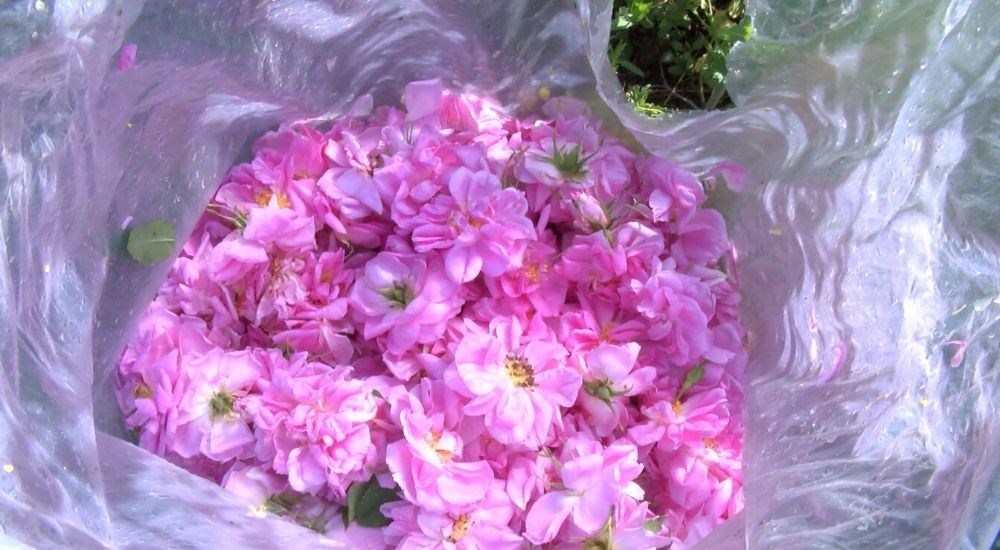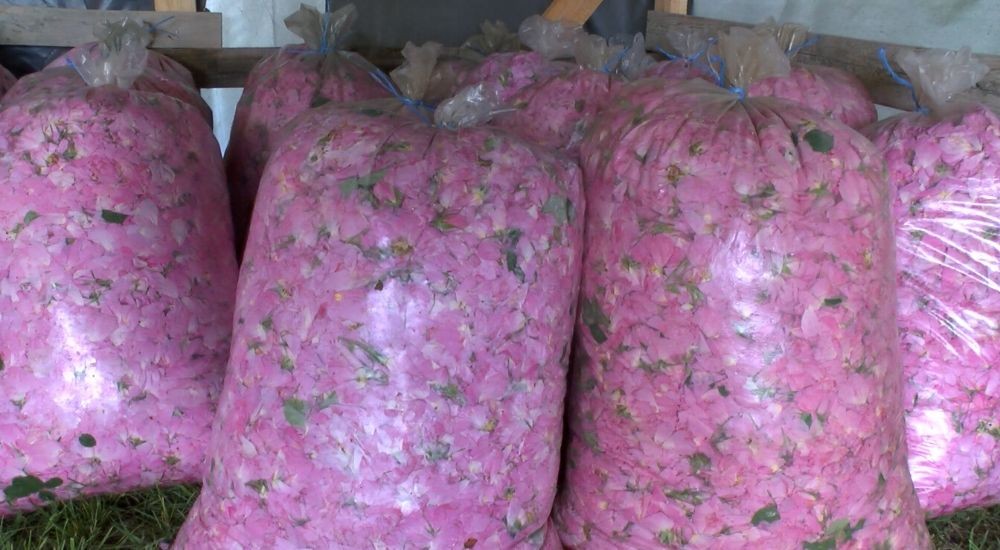All Bulgarian towns where oil-yielding rose is grown organize celebrations in May. However, this old means of livelihood has been experiencing serious difficulties during the coronavirus pandemic. Although there are many lands planted with oil-yielding rose in Bulgaria, the rose blossoms may remain unpicked this year, because demand has seen a sharp decrease and the purchasing price is low.
Residents of the town of Strelcha, who had stations for selling rose-blossoms last year, do not intend to open at all this season, because many rose producers have so far refused to pick and sell their roses. Thus, we will destroy our rose fields. I am no longer cultivating my roses, the owner of several decares of land planted with rose flowers told Radio Bulgaria. Other families with strong traditions in rose-production also share similar positions.

“We were literally “beheaded” so to speak. Even if we start protesting, no one will hear us. Nobody wants to work for EUR 0.75 per kilogram of rose flower. I spend roughly around EUR 250 for every decare planted with oil-yielding rose – for cultivation of land at least twice a year, for fertilizers and plant protection products. We work very hard no matter if it is hot or if it rains and we only receive half of the money. Those who buy our roses tell us we will get the rest of the money when rose-distilleries sell their produce. Otherwise, I love roses a lot. I grew with this flower. Picking rose blossoms feels good and I will miss it a lot. This year I will only go and pick a bunch of rose-flowers to make photos of our rose plantations”.

The problems in the production of essential oils are now being felt most strongly, but they have been accumulated for many years and are not a result of anyone’s whim to put pressure on the industry, but are rather due to economic mechanisms which are following the market logic- the chief production manager of one of Bulgaria’s oldest rose distilleries Veselin Ganchev says.
“It is entirely up to the rose producers whether to pick their rose blossoms or not. Nobody can tell them what to do. The problem of the rose growers is the money we pay them for their rose blossoms, but this is due to some reasons. Firstly, we have enough rose oil left from last year and all rose distilleries find difficulties selling their produce. Secondly, our competitors were offering Turkish rose oil last year at a much lower price. The large quantities of produced rose blossoms and lavender flowers are due to the multiple EU programmes aimed for producers of oil-yielding plants. The areas planted with these crops increased significantly. The high purchasing price in 2016 and 2017 which reached EUR 2.50 per kilogram made many farmers think that they would quickly become millionaires if they cultivate 130-150 decares of rose flowers. Recently, we have witnessed overproduction of rose blossoms which cannot be sold now. I have been corresponding with a foreign partner for days who contends that the essence of the problem is in the non-functioning trade network. Now, the places where perfumery production is sold the most- the airports and the perfumery shops- are closed and there is no demand. If perfume manufacturers are not selling their produce, they buy less essential oils. It is as simple as that”, Veselin Ganchev points out.

English version: Kostadin Atanasov
Photos: BGNES and Facebook/I Love StrelchaThe Gross Domestic Product has gone up by 2.4% during the third quarter of the year compared to the same period of 2023, indicate preliminary National Statistical Institute data. This indicates there is a certain acceleration of the growth..
A year with good results in the banking sector, achieved in a difficult domestic and external environment. This is how the governor of the Bulgarian National Bank (BNB), Dimitar Radev, assessed the outgoing 2024 in an interview with..
Bulgaria and Romania will be fully admitted to the Schengen area, said Walter Ruck, President of the Vienna Chamber of Commerce and Industry said during a meeting with Bulgarian Vice President Iliana Iotova in Vienna. Austrian businesses have always..
On the last day of last year, the Egyptian Minister of Investment and Foreign Trade Hassan al-Khatib awarded a total of nine gold licenses at a ceremony..
The two most sought-after currencies by Bulgarians in 2024 remain the US dollar and the euro, just as in 2023. The Turkish lira, the Romanian leu and the..
Based on preliminary data, the Finance Ministry expects a deficit of around BGN 6.1 billion ( €3.11 billion), or 3% of the projected gross domestic..

+359 2 9336 661
